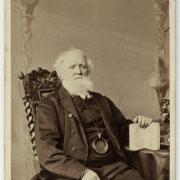‘The past is a foreign country,’ wrote LP Hartley. Yet when is ‘the past’? Is it the misty, far-off days of Jane Austen, dipping quill into inkwell at her walnut writing-desk: an age bound by chastity, modesty and obedience. (For women.)
Or of strait-laced Victorians, ever chaste in an era bound by prudery and purity. (For women.)
Or is the past just a little uncomfortably closer? The 1960s. An age you can glimpse – if you’re quick - over your shoulder; a flash of colour disappearing round a bend.
Or… maybe there’s but a (modestly-veiled) hair’s breadth between them. Between Jane Austen and the 1960s.
The 1960s: when a teenager discovered that society had nothing but contempt for an unmarried mother. When that same teenager discovered that even her own parents – shamed and humiliated by their child – could turn their backs seemingly without a qualm. Out of sight (the preference), out of mind.)

I meet Carole Taylor in her flat in the heart of Gloucester. It’s a far cry from the days of the mansion house she once lived in, but I like it. It suits her. Warm, cosy; full of family photographs. Weddings, graduations, school portraits, new-born babes.
It must be – oh, I don’t know – decades since we last saw each other. (Why?) But we click as if only yesterday she asked me to cover the morning’s police conference at the top of Stroud.
I’ve just finished reading the novel she has written, Perfectly Imperfect. The story of June and Juliet, teenagers in the 60s. June who, on her 18th birthday, is told by her parents that she is adopted.
‘You have the right to know where you have come from,’ her father says, gazing at her over half-moon spectacles before returning to his paper to read stock-market reports.
June greets the news with blank astonishment, before being sick in the downstairs loo.
‘Everyone was told that June had flu – a sudden bout that had caused her to take to her bed and stopped all the birthday celebrations.’
(Because heaven forbid anyone should know the truth. That’s not the currency with which the demimonde conducts its business.)
Only Juliet knows the truth; she hugs her distraught best friend as June weeps her recriminations: ‘How could they keep such a secret for so long?’
And then the ironies begin: the sort of ironies any novelist of note would employ to emphasise a point. June sleeps around, her anger manifesting itself in wild, sexual pleasure-seeking that – thank god – produces no ‘unwanted’ baby.
While red-haired Juliet takes a holiday in Italy, meets the handsome man of her dreams and… Well, no spoilers here. Except you need to know two things: when her parents force her home after four months’ happiness abroad, Juliet discovers she’s pregnant. What’s more, she doesn’t know whose baby it is.
This fiction is riveting. Except that, as I read, I instinctively understand that this is both fiction. And not.

‘Why now?’ I ask Carole Taylor. ‘And why a novel?’
Well, she says. She went to university for the first time, aged 71, followed by a master’s focusing on the women’s peace camp at Greenham Common, as well as Extinction Rebellion. When she failed to secure a loan for a PhD – ‘It was going to cost something like £24,000. I was told nobody would lend money to over 50s’ – she felt both crabby and at a loose end.
Then a memory struck her. Not so much the monstrous days of being pregnant and alone in the 1960s: those memories had never left her. Nor of the utter trauma of the day her baby, Vittoria, was adopted. No – what she’d half-forgotten was the fact that she had written it all down at the time.
‘I’d written down what happened to me in the mother-and-baby home because it was so horrific that I felt I ought to remember this and somehow let other people know. I’d hidden it away and it had come with me every time I moved. So I dragged it out, looked at it and thought: I can do something with this; I’ll write a book.’
And a novel, rather than a first-person memoir?
‘It just felt too raw.’
(Note this: More than half a century after the events she describes, and it’s still too raw.)

What Juliet endures in the mother-and-baby home – thrown out by her parents – is, quite simply, brutal. Juliet, of course, is a fictional character: ‘But they were things that happened to me. Everything that happened in the mother-and-baby home was true…
‘It’s what happened to me,’ Carole emphasises. ‘It’s how I felt.’
Blake House – or Bleak House as Juliet calls it – is ruled by a matron, the coldest, most unsympathetic person the terrified teenager has ever met. The girls here are ‘sinners’, no two ways about it. ‘They had broken the rules of respectability and decency and they now had to pay the price.’
Even the married mother who was raped by another man. ‘It was still her problem. Her husband left her and took the kids.’
And got custody?
‘And got custody of the children.’

When Juliet is in labour in hospital, things in many ways get worse. A nurse tries to force her to breastfeed; she hasn’t read the notes properly explaining that Juliet will have to give up her baby; explaining that creating this bond would be a brutality too far.
During visiting hours, Juliet is told her husband has arrived with flowers. Her insistence that this couldn’t be her husband (her invented one is ‘working abroad’) cuts no ice. When the man is finally led in to see her, it is – as she knows – the wrong ward.
The passage I can hardly bear comes as she is (effectively) forced to leave the baby with a foster mother. As Juliet makes for the door, unable even to look at her daughter, she’s called back by the social worker. ‘Hand her over physically. You must pick her up and hand her to me to show you are giving her up.’
The anger I feel at even reading this…
What I find particularly hard to swallow are the attitudes. From her own parents. From other parents. An unmarried daughter over 25 is on the shelf. A teenage bride is a source of pride. (An accidental maxim created there.) An unmarried pregnant teenager should be married off to the first man who’ll have her. Whoever he might be.
Really, any one of those mothers could take tea with Mrs Bennet without either side batting an eyelid.
And then there’s Mike, Juliet’s (Carole’s) casual – platonic - boyfriend, who is still around when she gets back from Italy. At a point where she’s confused, distraught…
‘I’m not saying he rapes you,’ I say to Carole. ‘But there is a thin line between what happens and your state.’
‘There is. But, at the time, I wouldn’t have thought of it; now I can look back and think, yes.’
‘No state to give consent.’
‘I certainly didn’t give consent. In fact, I didn’t even know it was happening…
‘Oh my god, yes,’ she adds, after a pause.
So, although Carole was sure the baby was conceived in Italy, she couldn’t prove it.
‘I’m so sorry.’
‘It’s OK. Did you feel for me?’
‘I couldn’t imagine my daughter being in that situation.’
‘Exactly.’
These are not mere anecdotes, of course. They are descriptions. Another scene in the book, too, has its origins in experience.
‘When I was working on the Worthing Gazette as a trainee reporter, a girl in our newsroom got pregnant by a photographer. They were both called into the office. She was dismissed. He went back to being a photographer.’

There are happy parts, too. Such as the kindly family that took Carole on – the Morrisons in the book – in the weeks before she moves to ‘Bleak’ House. In fact, the novel is part-dedicated to them. Yet even Mrs Morrison – who herself has adopted children – thinks adoption the only answer for unmarried mother and baby.
And Ray, lovely Ray, who became Carole’s husband. Ray who didn’t give two hoots that his wife had had an ‘illegitimate’ child. The whole family would celebrate Vittoria’s birthday – in her physical absence - each year.
Ray, who died, aged 66, as he was driving them both to the shops in Stroud one snowy winter’s day.
And the real happy ending? Carole and Vittoria – now called Georgina – met after Georgina began a search for her birth mum. (Thanks, ultimately, to a 1975 change in the law, allowing adopted children to access information.)
‘When you saw her?’
‘We had an instant connection. I think she would say that, too. And the fact that she looks like me, although she’s dark; she’s got dark hair…’
There’s a proud photo of Georgina on the table besides Carole’s chair. Their relationship today is a strong and loving one.
But that is a story for another book. Literally. For Perfectly Imperfect will be a trilogy, the second focusing on June and Juliet 50 years on. The third on Juliet’s granddaughter.

Three books because the stories cannot be contained in one. Yet three books, too, because the cruelties of an age echo far into a future, no matter how different that future has become.
What would Juliet/Carole, as a teenager, make of that ‘different future’, I wonder. Where women can be prime ministers. Where few would blink (in this country, at least) at an unmarried mother?
‘I think she would have been amazed. Pleased, of course. Maybe a little angry that it didn’t happen for her. I was right on the end of all that nonsense. One of the final victims.’
‘Did your parents reconcile with the idea?’
‘No. It was never mentioned; it was never ever mentioned again. Ever.’
• Perfectly Imperfect (The Story of the Two Js) by CJ Taylor is available via Amazon, paperback £12; Kindle £3.99. The novels are currently independently published. Carole Taylor would welcome approaches from publishers: carole.jtaylor@hotmail.co.uk




























